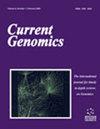Genomic and Metagenomic Insights into the Distribution of Nicotine-Degrading Enzymes in Human Microbiota
IF 1.4
4区 生物学
Q4 BIOCHEMISTRY & MOLECULAR BIOLOGY
引用次数: 0
Abstract
Introduction: Nicotine degradation is a new strategy to block nicotine-induced pathology. The potential of human microbiota to degrade nicotine has not been explored. Aims: This study aimed to uncover the genomic potentials of human microbiota to degrade nicotine. Method: To address this issue, we performed a systematic annotation of Nicotine-Degrading Enzymes (NDEs) from genomes and metagenomes of human microbiota. A total of 26,295 genomes and 1,596 metagenomes for human microbiota were downloaded from public databases and five types of NDEs were annotated with a custom pipeline. We found 959 NdhB, 785 NdhL, 987 NicX, three NicA1, and three NicA2 homologs. Results: Genomic classification revealed that six phylum-level taxa, including Proteobacteria, Firmicutes, Firmicutes_A, Bacteroidota, Actinobacteriota, and Chloroflexota, can produce NDEs, with Proteobacteria encoding all five types of NDEs studied. Analysis of NicX prevalence revealed differences among body sites. NicX homologs were found in gut and oral samples with a high prevalence but not found in lung samples. NicX was found in samples from both smokers and non-smokers, though the prevalence might be different.人类微生物群中尼古丁降解酶分布的基因组学和元基因组学启示
介绍:尼古丁降解是阻止尼古丁诱发病理学的一种新策略。人类微生物群降解尼古丁的潜力尚未得到探索。目的:本研究旨在揭示人类微生物群降解尼古丁的基因组潜力。方法:为了解决这个问题,我们对人类微生物群基因组和元基因组中的尼古丁降解酶(NDEs)进行了系统注释。我们从公共数据库中下载了26,295个人类微生物群的基因组和1,596个元基因组,并使用定制管道注释了五种类型的尼古丁降解酶。我们发现了 959 个 NdhB、785 个 NdhL、987 个 NicX、3 个 NicA1 和 3 个 NicA2 同源物。结果基因组分类显示,六个门级类群,包括变形菌门、固形菌门、固形菌_A 门、类杆菌门、放线菌门和绿藻门,都能产生 NDEs,其中变形菌门编码了所研究的所有五种 NDEs。对 NicX 流行情况的分析表明,不同的身体部位存在差异。在肠道和口腔样本中发现的 NicX 同源物的流行率很高,但在肺部样本中却没有发现。在吸烟者和非吸烟者的样本中都发现了 NicX,但流行率可能有所不同。
本文章由计算机程序翻译,如有差异,请以英文原文为准。
求助全文
约1分钟内获得全文
求助全文
来源期刊

Current Genomics
生物-生化与分子生物学
CiteScore
5.20
自引率
0.00%
发文量
29
审稿时长
>0 weeks
期刊介绍:
Current Genomics is a peer-reviewed journal that provides essential reading about the latest and most important developments in genome science and related fields of research. Systems biology, systems modeling, machine learning, network inference, bioinformatics, computational biology, epigenetics, single cell genomics, extracellular vesicles, quantitative biology, and synthetic biology for the study of evolution, development, maintenance, aging and that of human health, human diseases, clinical genomics and precision medicine are topics of particular interest. The journal covers plant genomics. The journal will not consider articles dealing with breeding and livestock.
Current Genomics publishes three types of articles including:
i) Research papers from internationally-recognized experts reporting on new and original data generated at the genome scale level. Position papers dealing with new or challenging methodological approaches, whether experimental or mathematical, are greatly welcome in this section.
ii) Authoritative and comprehensive full-length or mini reviews from widely recognized experts, covering the latest developments in genome science and related fields of research such as systems biology, statistics and machine learning, quantitative biology, and precision medicine. Proposals for mini-hot topics (2-3 review papers) and full hot topics (6-8 review papers) guest edited by internationally-recognized experts are welcome in this section. Hot topic proposals should not contain original data and they should contain articles originating from at least 2 different countries.
iii) Opinion papers from internationally recognized experts addressing contemporary questions and issues in the field of genome science and systems biology and basic and clinical research practices.
 求助内容:
求助内容: 应助结果提醒方式:
应助结果提醒方式:


